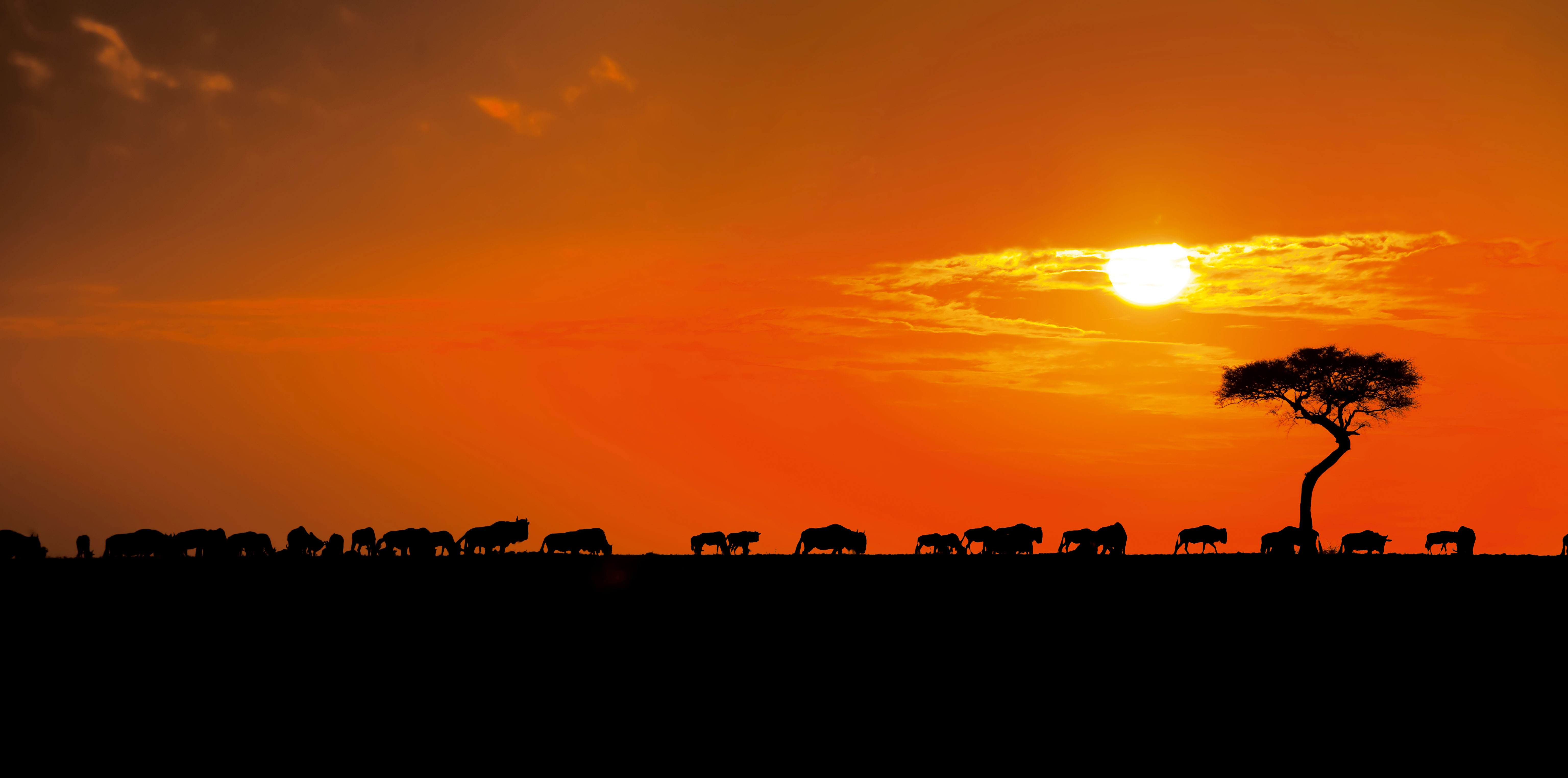Can Africa save the West?
The case for a Western pivot to Africa


A free daily email with the biggest news stories of the day – and the best features from TheWeek.com
You are now subscribed
Your newsletter sign-up was successful
In a strange decade rapidly getting stranger, the biggest surprise of all could be that Africa saves the West.
Don't laugh — and don't recoil in post-colonialist horror. Political, cultural, and economic stars are aligning for a big strategic shift that could bring Africans and Westerners into a powerful relationship of mutual benefit and respect.
Why Africa? Simple. For the West, there's a sheer lack of alternatives. Even more significant, however, that's just as true for Africans.
The Week
Escape your echo chamber. Get the facts behind the news, plus analysis from multiple perspectives.

Sign up for The Week's Free Newsletters
From our morning news briefing to a weekly Good News Newsletter, get the best of The Week delivered directly to your inbox.
From our morning news briefing to a weekly Good News Newsletter, get the best of The Week delivered directly to your inbox.
In this historic moment of weakness, it's Westerners who are on the verge of coming crying to Africa. As Mideast violence and European dysfunction have put America's regional allies back on their heels — giving great-power adversaries a string of advantages the U.S. needs to offset — leading Western powers are hard pressed to seek geopolitically favorable ground. All along the West's southeastern flank, from Turkey to the Baltic Sea, there's bad news, and no clear path toward regaining the initiative.
Indeed, the West has all but run out of options to change the game. China has our Asian allies' hands full; Russia shows no true interest in a fair and friendly grand bargain; South America struggles under the combined weight of Venezuelan, Brazilian, and Argentinian failures. In that sense, there's nowhere for enterprising Western policy entrepreneurs to go but Africa.
Especially in the wake of Brexit, "the West" — as a major concert of powers with shared interests and abilities — is basically down to the U.S., France, the U.K. (plus the big Commonwealth countries), and, yes, Israel. Each and all of these core Western nations can look to Africa for unique strength, partnership, and socioeconomic synergy.
Let's consider them in turn. The U.S. is Africa's only great-power patron that doesn't seek an invidious and fundamentally alien kind of influence. Sub-Saharan regimes may see good reason in leaning on China for infrastructure and cash, but it is the U.S. whose security umbrella offers both protection and freedom, and the U.S. that did, under President George W. Bush, transform Africa's prospects by attacking the grave public health crisis posed by AIDS. No Western power has an unblemished track record in Africa, and the U.S. is no exception. But America's anti-colonialist bona fides remain strong, and its help in combating militant Islam is essential.
A free daily email with the biggest news stories of the day – and the best features from TheWeek.com
What the U.S. lacks in intimate history, France brings to the table. Clearly no African nation is yearning to hand more of its destiny to France. Francophone Africa does, however, work well with the French in shouldering security burdens the U.S. can't manage alone. At this point, for former French colonies as well as other nations, a stronger France is more of a boon than a bane — especially if the EU's relevance continues to wane.
For Britain's part, greater independence is already in the works, with all the change in focus toward the world outside Europe that entails. Greater cooperation and stronger alliances with Anglophone Africa should be a top priority, especially given the painful disruptions that Brexit could cause. (To its credit, France is already doing its part to foster a smooth transition.) Ironically, the newly "diminished" U.K. can come to the African table less arrogant, less intimidating, and less haunted by the worst its identity and history have to offer.
But the great wild card is Israel, where Benjamin Netanyahu has returned from an unprecedented and productive African goodwill tour. In a brief visit, his farsighted goal of beginning greater strategic, economic, and diplomatic ties was met. Reorienting toward Africa and away from Europe and the Mideast would revolutionize Israel's future, offering markets and friends free of the ethnic and cultural psychoses that so often surround it.
Despite profound challenges, Africa is a continent poised to rise as much of Europe and its environs sink further. That is no reason for the West to retreat from its eastern frontiers. But it is a compelling reason to reach out past the old, obsolete frontiers of the colonial age. Africans, meanwhile, justifiably proud of their uniqueness, resilience, tenacity, and promise, are already closer by far to Westerners than to any of their civilizational competitors. In the trying years to come, Africa and the West had best stand together — lest separately they fall.
James Poulos is a contributing editor at National Affairs and the author of The Art of Being Free, out January 17 from St. Martin's Press. He has written on freedom and the politics of the future for publications ranging from The Federalist to Foreign Policy and from Good to Vice. He fronts the band Night Years in Los Angeles, where he lives with his son.
